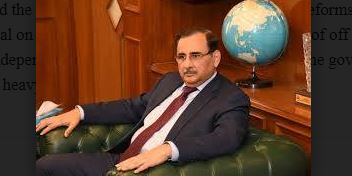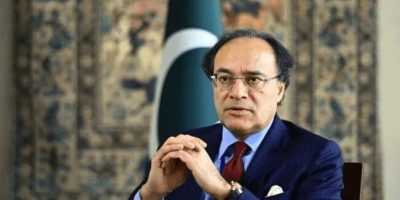Mian Anjum Nisar says LNG becomes major contributor to growing circular debt

ISLAMABAD, MAY 28 /DNA/ – The Federation of Pakistan Chambers of Commerce and Industry’ s Businessmen Panel (BMP) Chairman Mian Anjum Nisar has warned the new government of worsening circular debt in the power sector, which would continue to haunt it along with the challenge of dealing with the rising crude oil prices in the global market.
He said that the power sector circular debt issue should be resolved holistically without escalating electricity cost, as its size has more than doubled during the three and a half years in spite of raising the power tariff multiple times in the past.
At present, oil and gas sectors are reeling from Rs1.6 trillion worth of circular debt whereas the power sector has a circular debt close to Rs2.5 trillion. The rising gas demand forced the previous government, which ran the country from August 2018 to early April 2022, to divert expensive LNG to the residential consumers in winter. However, there was no mechanism in place to recover dues from the domestic sector. Now, LNG has become a major contributor to the circular debt, leading to deterioration in the financial health of Pakistan State Oil and Sui Northern Gas Pipelines Limited. PSO has to receive over Rs270 billion from SNGPL on account of LNG supplies whereas SNGPL has to recover around Rs100 billion from the domestic sector, industry players say. The Petroleum Division is set to seek approval of the new government for the provision of Rs26 billion, out of a total of Rs41 billion, to SNGPL to cover the subsidy on LNG supplies to the export-oriented sectors.
Apart from the circular debt woes, price differential claims of billions of rupees are emerging because of the freeze on oil price revision while in the international market crude oil has risen to multi-year highs.
Already, the consumers in Pakistan are paying record high prices of petroleum products.
“We have to resolve the circular debt issue by revamping the entire power sector, including tariff setting, efficiencies of power generating units, supply chain network and payment recoveries. If this is not done, the future of energy sector would remain at stake,” he warned. Anjum Nisar said that the power sector problem is a multifaceted problem and the government must avoid increasing the cost further, especially for the industry.
He said that the government claimed that it has been making efforts to improve efficiency but the power sector situation remains grim despite putting an additional burden of Rs165 billion on consumers in the past one year by increasing electricity prices. In fiscal year 2021-22, the government provided Rs133 billion less in subsidies as against the requirements based on reduced rate of tariffs for various categories of consumers.
The government has recently prepared a plan to reduce the circular debt but the new plan, drawn up in consultation with the International Monetary Fund, shows that the circular debt reduction will largely hinge up increasing the electricity prices.
Mian Anjum Nisar said that the issue of circular debt will continue to haunt the government’s resolve of reducing cost of doing business and promotion of industry. The continuous increase in the flow of the circular debt was against the promises of the govt to bring the circular debt to zero. It is going to make another plan to reduce the debt, mainly by increasing electricity tariffs which is not the proper way to handle the issue.
The circular debt in June 2018 was Rs1.148 trillion that has jumped to Rs2.327 trillion by June 2021 – an increase of more than 100 percent in three years of the government. Referring to a report, he said that the government added another Rs72 billion in the circular debt on account of interest payments to the IPPs on delayed payments, which were 31% higher than the preceding year. Similarly, another amount of Rs37 billion was added on account of interest paid on the Power Holding Limited loans, which were 47% less than the previous year. This is despite the fact the consumers are also paying debt servicing surcharge through their monthly bills.
FPCCI former president and the BMP Chairman called for power sector reforms, considering the matter of overbilling, technical losses, transmission issues, proposal on decentralization of the sector, promotion of off grid solutions, incentives for renewable energy solutions and capacity payments to the independent power producers. He added that if the government failed to take immediate measures the power sector is likely to choke up due to heavy outstanding dues.=DNA
=============
Related News

Aurangzeb chairs meeting on regional energy situation
ISLAMABAD, MAR 4 /DNA/ – The Committee to Monitor Petrol Prices in the Wake ofRead More

Ambassador Varga highlights strong potential for bilateral trade growth
ISLAMABAD, MAR 4 /DNA/ – Ambassador of Hungary Dr. Zoltan Varga has said that HungaryRead More


Comments are Closed